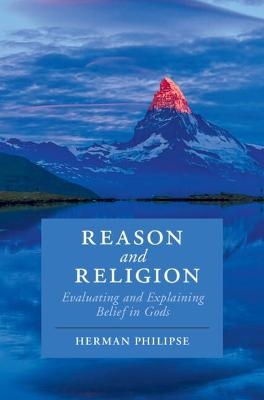
Reason and Religion
Evaluating and Explaining Belief in Gods
Seiten
2022
Cambridge University Press (Verlag)
978-1-107-16173-3 (ISBN)
Cambridge University Press (Verlag)
978-1-107-16173-3 (ISBN)
Combines philosophical investigations concerning the truth of religious convictions with empirical research on the origins and functions of religious beliefs. This book focuses on two core questions: (1) How probable is it that any particular god exists? (2) How should we account for the occurrence of religious beliefs in human societies?
Religion is relevant to all of us, whether we are believers or not. This book concerns two interrelated topics. First, how probable is God's existence? Should we not conclude that all divinities are human inventions? Second, what are the mental and social functions of endorsing religious beliefs? The answers to these questions are interdependent. If a religious belief were true, the fact that humans hold it might be explained by describing how its truth was discovered. If all religious beliefs are false, a different explanation is required. In this provocative book Herman Philipse combines philosophical investigations concerning the truth of religious convictions with empirical research on the origins and functions of religious beliefs. Numerous topics are discussed, such as the historical genesis of monotheisms out of polytheisms, how to explain Saul's conversion to Jesus, and whether any apologetic strategy of Christian philosophers is convincing. Universal atheism is the final conclusion.
Religion is relevant to all of us, whether we are believers or not. This book concerns two interrelated topics. First, how probable is God's existence? Should we not conclude that all divinities are human inventions? Second, what are the mental and social functions of endorsing religious beliefs? The answers to these questions are interdependent. If a religious belief were true, the fact that humans hold it might be explained by describing how its truth was discovered. If all religious beliefs are false, a different explanation is required. In this provocative book Herman Philipse combines philosophical investigations concerning the truth of religious convictions with empirical research on the origins and functions of religious beliefs. Numerous topics are discussed, such as the historical genesis of monotheisms out of polytheisms, how to explain Saul's conversion to Jesus, and whether any apologetic strategy of Christian philosophers is convincing. Universal atheism is the final conclusion.
Herman Philipse is Distinguished Professor Emeritus at the University of Utrecht, The Netherlands. He is the author of God in the Age of Science? A Critique of Religious Reason (Oxford University Press), and of numerous publications on many philosophical topics.
Introduction; Part I. The Reasonableness of Religious Beliefs: 1. Religious epistemology; 2. Science and religion; Part II. The Evolution of Religion and Ethics; 3. Religions: Origins and evolution; 4. Religion and ethics; Part III. Apologetic Strategies Evaluated: 5. The decision tree for religious believers; 6. Natural theology; Conclusion.
| Erscheinungsdatum | 21.04.2022 |
|---|---|
| Reihe/Serie | Cambridge Studies in Religion, Philosophy, and Society |
| Verlagsort | Cambridge |
| Sprache | englisch |
| Maße | 158 x 235 mm |
| Gewicht | 500 g |
| Themenwelt | Geisteswissenschaften ► Philosophie ► Ethik |
| Geisteswissenschaften ► Religion / Theologie | |
| ISBN-10 | 1-107-16173-8 / 1107161738 |
| ISBN-13 | 978-1-107-16173-3 / 9781107161733 |
| Zustand | Neuware |
| Haben Sie eine Frage zum Produkt? |
Mehr entdecken
aus dem Bereich
aus dem Bereich
unsere kollektive Verantwortung
Buch | Hardcover (2023)
wbg Theiss in Wissenschaftliche Buchgesellschaft (WBG) (Verlag)
35,00 €


